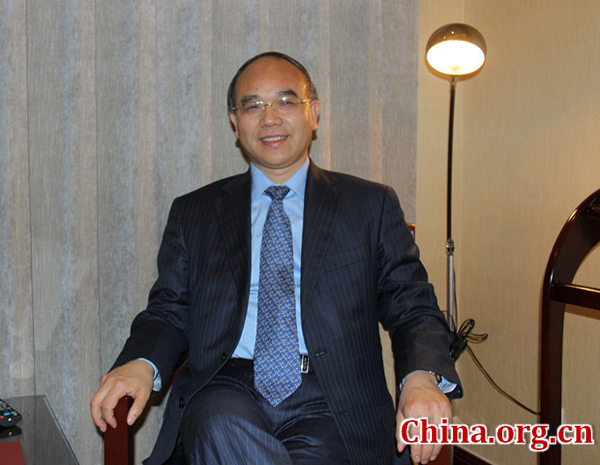An interview with pioneer translator Xu Jun
- By He Shan
 0 Comment(s)
0 Comment(s) Print
Print E-mail China.org.cn, December 10, 2012
E-mail China.org.cn, December 10, 2012
|
|
|
Xun Jun,??a distinguished translator best known for his translations of French novelists and a professor at China's Nanjing University. |
Xu Jun, a distinguished translator best known for his translations of French novelists and a professor at China's Nanjing University, sat down for an interview with China.org.cn to talk about translation and culture. [ More interviews with translation gurus]
In 1976, Xu began to dabble in the field of translation and has since translated a wide range of French books into Chinese, including "The Unbearable Lightness of Being" by Milan Kundela, and "Remembrance of things past" by Marcel Proust.
As an active translator, Xu has always been wrestling with the question of how to make Chinese culture and literature accessible to a global readership during his, now spanning over 30 years, translation career.
"The job of translating Chinese literature and other culture-laden works into other languages is nothing less than a formidable task," he said. He also admitted that China lacks translators both versed in languages and Chinese cultural knowledge.
"No matter how capable the translator is language-wise, introducing Chinese culture to the outside world will be a mission impossible if he doesn't have a good grasp of the culture," Xu said.
As China achieved great economic successes over the past three decades, it began to zealously seek cultural influence, also termed soft power, on the international community.
Mo Yan's winning of the Nobel Prize in Literature this year really drew wider global attention to Chinese literature and culture, as well as reinforced China's efforts in making its voices more heard in the world.
Commenting on Mo Yan's success, Xu said it is founded on the successful translation of his works, adding that his works feature abundant Chinese culture, which is the prerequisite for his success.
Although Xu's reputation rests primarily on his translations, his scholarly studies of translation philosophies and theories are also highly regarded by specialists.
When it came to the relationship between the practice and theory of translation, he stressed that the two can never be separated. "Theory guides practice, and practice enriches theory."
In addition to being a translator and scholar, Xu Jun is an inspiring teacher and a dedicated mentor who aims to contribute to his students' intellectual development.
He was one of the founders of the translation discipline in Chinese universities. In 2007, Chinese universities began to offer Masters of Translation and Interpreting (MIT) and currently there are 158 schools in China offering such courses, with an annual enrollment of 2,500-3,000 students.
"Only then the status of translation is promoted to an independent discipline, can studies and other activities in the field move to a higher level," he said.
Over the past 30 years, China's economic success has been paralleled by a translation boom. Between 1980 and 2009, an aggregate of 9,763 books-in terms of categories-were translated into foreign languages, according to the Annual Report on China's Translation Industry released in 2012.
Yet, as far as China's universities are concerned, translation works still cannot be considered as criteria for evaluating a teacher's performance or promotion.
"It really is a problem, but change is underway," he said. "More and more works of translation are being awarded and quite a few translation projects have been sponsored by the National Social Science Fund."
The article was first published in Chinese.






